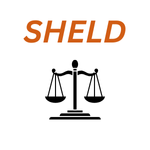Introduction
The debate between regulation and deregulation lies at the heart of modern economic and legal policy. Advocates of regulation argue that legal frameworks are necessary to correct market failures, protect consumers, and ensure fair competition. Proponents of deregulation contend that excessive government intervention stifles innovation, reduces efficiency, and imposes unnecessary costs on businesses. From an efficiency perspective, the central question is not whether regulation or deregulation is inherently superior but under what conditions each maximizes social welfare. This article provides an in-depth analysis of the efficiency implications of regulation and deregulation across different markets.
The Case for Regulation
- Correcting Market Failures
Markets often fail to allocate resources efficiently due to externalities, public goods, information asymmetries, or natural monopolies. Regulation can address these inefficiencies:- Externalities: Pollution controls internalize environmental costs.
- Public Goods: Government ensures provision of non-excludable goods like national defense.
- Information Asymmetry: Consumer protection laws safeguard against deceptive practices.
- Ensuring Fair Competition
Regulation prevents monopolies and cartels from abusing market power. Antitrust laws are a cornerstone of this effort. - Protecting Consumers and Workers
Safety standards, labor protections, and financial regulations protect vulnerable groups from exploitation or harm. - Stability and Trust
Well-designed regulations reduce uncertainty, fostering long-term investment and economic stability.
The Case for Deregulation
- Reducing Bureaucratic Inefficiencies
Excessive regulation creates compliance costs and administrative burdens that hinder business activity. - Encouraging Innovation
Firms in deregulated environments can experiment with new technologies and business models without restrictive oversight. - Enhancing Market Discipline
Without regulatory safety nets, firms must operate efficiently to survive, fostering productivity and competitiveness. - Dynamic Efficiency
Deregulated markets adapt more quickly to changing consumer preferences and technological developments.
Efficiency Trade-Offs
The efficiency implications of regulation versus deregulation depend on balancing two primary considerations:
- Allocative Efficiency: Achieved when resources are distributed in a way that maximizes consumer satisfaction. Regulation may improve allocative efficiency by correcting externalities but can reduce it if rules distort market signals.
- Productive Efficiency: Concerns minimizing production costs. Deregulation may enhance productive efficiency by removing bureaucratic barriers, though it can also encourage harmful cost-cutting (e.g., compromising safety).
- Dynamic Efficiency: Refers to innovation and long-term growth. Deregulation often fosters innovation, but regulation can support it by setting standards and ensuring fair competition.
Sectoral Perspectives
- Financial Markets
- Deregulation in the 1980s and 1990s increased efficiency and innovation in financial products. However, the 2008 financial crisis highlighted the risks of under-regulation, with excessive risk-taking leading to systemic collapse.
- Airline Industry
- U.S. airline deregulation in 1978 lowered fares, increased competition, and expanded consumer choice. Yet, it also led to consolidation and service reductions in smaller markets.
- Telecommunications
- Deregulation fostered innovation, expanded access, and reduced prices. At the same time, network effects and market concentration raised concerns about long-term competition.
- Energy Sector
- Deregulation of electricity markets created competition but also led to volatility and crises, such as California’s energy crisis in the early 2000s.
- Environmental Regulation
- Strong regulation has been essential in reducing pollution and addressing climate change. Deregulation in this context risks severe negative externalities.
Modern Challenges in Regulation vs. Deregulation
- Digital Platforms and Big Tech
- Deregulation allowed tech giants to flourish, but their dominance now raises questions about competition and consumer protection.
- Globalization
- International trade and investment complicate regulatory design. Overregulation may drive firms abroad, while deregulation can expose domestic markets to global shocks.
- Climate Change
- Efficient responses to environmental challenges require targeted regulation, such as carbon pricing, to internalize externalities.
- Healthcare
- Over-regulation can raise costs and limit access, while under-regulation risks patient safety and inequities in care delivery.
Policy Considerations
- Smart Regulation
The key is not more or less regulation but better regulation. Smart regulation minimizes burdens while addressing genuine market failures. - Regulatory Impact Assessment
Evaluating the costs and benefits of regulations ensures they enhance rather than hinder efficiency. - Adaptive Regulation
Regulatory frameworks must evolve with technological change and global economic shifts. - Balancing Competing Goals
Efficiency is one measure, but policymakers must also weigh equity, stability, and sustainability.
Conclusion
The regulation versus deregulation debate cannot be resolved with a one-size-fits-all answer. From an efficiency perspective, regulation is justified when it corrects market failures and promotes long-term social welfare, while deregulation is preferable when it reduces unnecessary barriers and fosters innovation. Effective policymaking lies in finding the right balance—crafting rules that safeguard competition and consumers without stifling dynamism. In an era of rapid technological, environmental, and economic change, adaptive and evidence-based regulation will be crucial for ensuring that markets serve the broader public interest.




